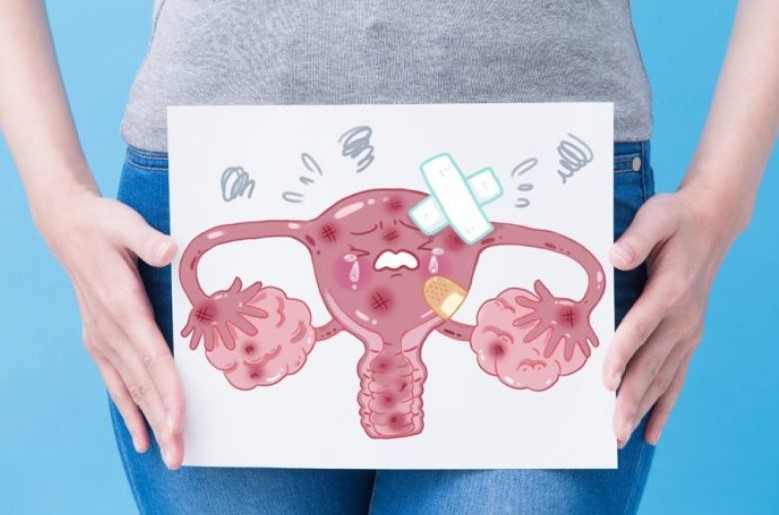Silent endometriosis, which could coexist with endometritis, is often the cause of unexplained infertility. Endometritis and endometriosis are two distinct conditions that affect the uterine lining. These conditions differ in everything from the causes to the symptoms and treatments.
Definition
Endometritis is an irritation or inflammation of the endometrium (uterine wall). Endometriosis is a more complex disorder where the endometrium tissues grow outside the uterus.
The tissue may invade the fallopian tubes, ovaries, and adjacent pelvic tissues. This tissue may behave like uterine wall tissue, thickening and disintegrating with each menstrual cycle.
As the unusual tissue disintegrates, it remains trapped because it lacks an outlet. The disintegrated tissue irritates its surroundings, which may lead to adhesions. Adhesions are fibrous scar tissue strands that may cause organs to stick together.
Click here – Reasons To Seek Chiropractic Care in Seattle
Causes
The causes of endometriosis and endometritis differ, but it is common for the two conditions to occur simultaneously.
Causes of Endometritis
The most common causes of endometritis are infections such as:
- Urinary tract infections (UTIs)
- Sexually transmitted infections (STIs) like gonorrhea and chlamydia
- Vaginal canal bacteria
Women who have undergone specific procedures are more likely to develop endometritis. These procedures may include endometrial biopsies and intrauterine device (IUD) insertions.
Causes of Endometriosis
The exact causes of endometriosis are unclear. But some factors may increase the risk of getting the condition, including:
- Early menstruation
- Abnormal menstrual cycles
- High estrogen levels
- Genetics
Symptoms
Because the two conditions affect the uterus wall, patients may experience abdominal pain in either case. The level of pain and discomfort is never an indicator of how severe the condition is. Those with either condition could be asymptomatic or exhibit mild signs that are easy to overlook.
Click here – Cooking Spices You Can Buy From Israel
Endometritis Symptoms
A range of symptoms could point to this condition, including:
- General sick feeling
- Fever
- Pelvic pain
- Abdominal pain
- Enlarged abdomen
- Vaginal bleeding or discharge
When endometritis progresses to a chronic stage, there may be no symptoms.
Endometriosis Symptoms
The most evident symptom of endometriosis is pelvic pain during menstruation. It is more severe than the pain that most women experience when they get their period. Other symptoms may include:
- Cramping at any stage of the cycle
- Heavy menstrual flow
- Pain during sex
- Painful periods
- Painful urination or bowel movements
- Fatigue
- Bloating
- Constipation
- Diarrhea
- Nausea
Diagnosing endometriosis may be challenging when it does not present obvious symptoms. Infertility is the only symptom that some patients experience.
Treatment
There are several treatment options for endometriosis and endometritis to help manage the symptoms. Hormonal imbalances may trigger endometriosis, so treatment may involve hormonal birth control. Since infections are the leading cause of endometritis, treating them may reduce the symptoms and cure the condition.
Endometritis Treatment
Treatment for endometritis is often much more straightforward than for endometriosis. The patient is treated for the infections causing the inflammation, and the endometrium heals. Antibiotics and intravenous fluids are the common treatment options for infections that lead to endometritis.
The following can also help manage the symptoms:
- Getting more sleep
- Drinking plenty of water
- Following safe sexual health and hygiene practices
Patients should let their sexual partners know if an STI brought on endometritis. The partner getting medical attention can help reduce the risk of STI recurrence.
Endometriosis Treatment
Scientists have yet to find a cure for endometriosis, but there is an effective treatment for the symptoms. Hormone treatment can help stop the further production of hormones that promote endometrial growth. Pills and injections are the available options for hormone therapy.
Doctors may also prescribe oral contraceptives (birth control pills) to lighten, shorten, or regularize the patient’s menstrual period. Painkillers also offer short-term pain relief, especially during menstruation.
Surgical procedures may sometimes be necessary to ease endometriosis-related pain and increase fertility. Through surgery, doctors find and remove endometriosis lesions that already exist to allow possible conception.
Reliable Test for Silent Endometriosis
While endometriosis may present severe symptoms for some, it may not show for others. Many women may suffer from unexplained infertility and failed IVF due to undiagnosed endometriosis.
The BCL6 test is a reliable test that can help detect the presence of proteins abundantly present in endometriosis cells. A positive test indicates a high likelihood that one has silent endometriosis. A proper diagnosis will help patients get the best treatment option for fertility issues.

